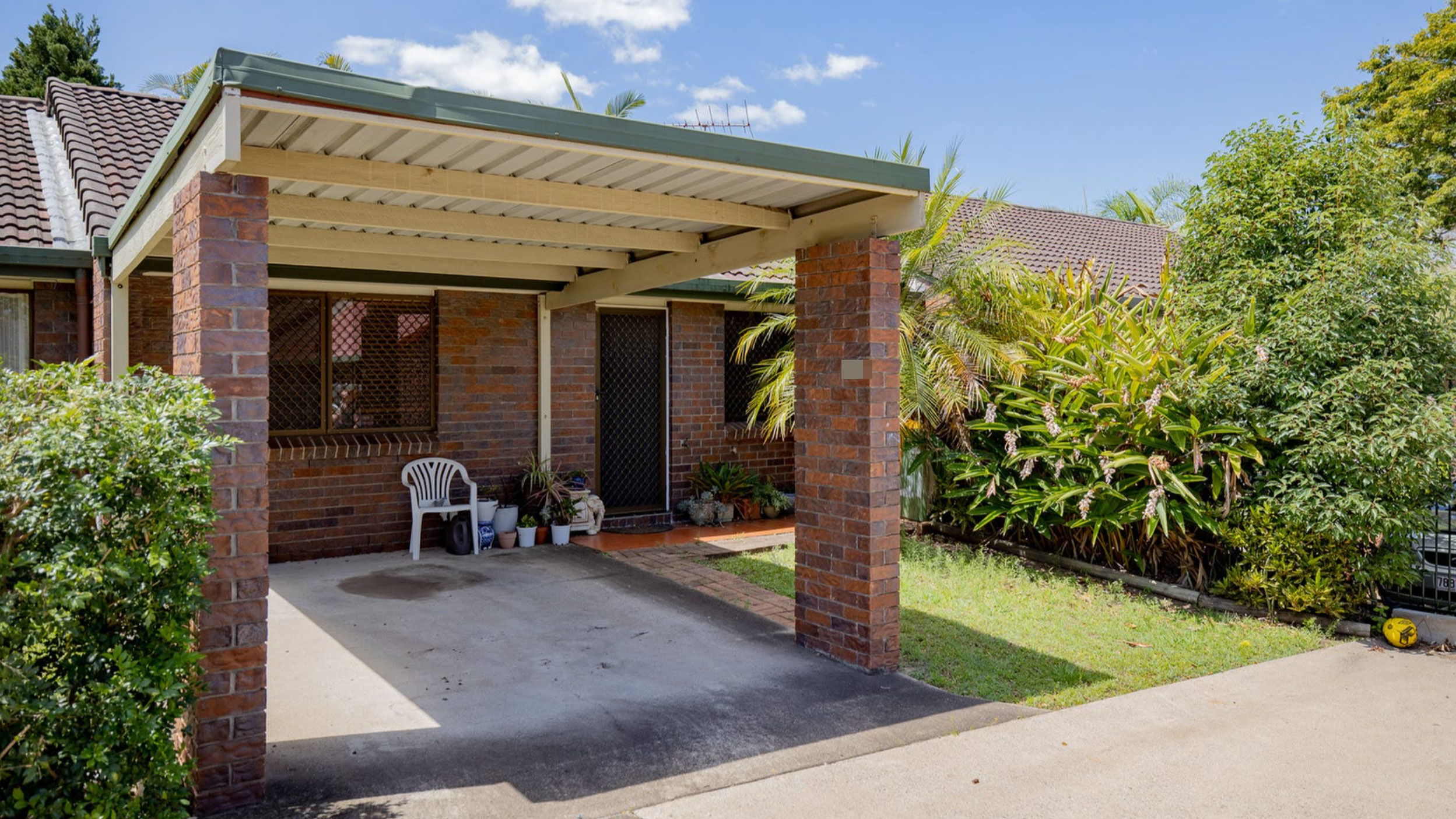Brisbane landlord David Holt feels like he is caught between a rock and a hard place.
Surging interest rates mean that when the fixed term of his interest-only mortgage ends in January, he will suddenly be losing money on the modest, two-bedroom unit he bought in Logan, south Brisbane for $150,000 in December, 2020.
When this happens, Holts says, he will be forced to increase the rent he is charging.
READ MORE: Family-of-five forced to share single motel room

It's something he says he has been trying his very best to avoid because he knows the impact it will have on his pensioner tenant.
Yvonne, who asked for her surname to be withheld, currently pays $290 per week to rent Holt's unit in Woodridge - where she has lived for six years.
The 72-year-old told 9news.com.au her current rent represents 57 percent of her income, which includes the aged pension and rental assistance of $130 per fortnight.
Yvonne said when she did a recent search of rental nearby properties, it showed up just 3 out of 50 that she could "afford", however these would also swallow up more than half of her income.
Anyone paying more than 30 percent of their income for housing meets the definition of being in rental stress.
Yvonne was, in short, facing down the barrel of homelessness, she said.
"If the owner increases the rent in January, it will essentially make me have to decide which bridge I am going to have to live under," she said.
Yvonne, a former social worker who raised her children as a single mum, said she was barely scraping by as it was.
"It is difficult. I certainly don't buy luxury items in terms of food and I'm forced to use a credit card to pay off bigger items, which will leave me in debt," she said.
Yvonne said she was also very wary of predicted electricity price hikes.
READ MORE: Celebrities pay tribute to Olivia Newton John following her death
"I focus on just keeping one light on at night and the TV. I only use the (heating) when I am absolutely freezing."
Yvonne said the amount of rental assistance she received from the government had not changed in years.

"The pension is not enough to live on and there definitely needs to be an increase in rent assistance, given the circumstances," she said.
Holt said he felt nothing but sympathy for Yvonne.
At 80 years old, Holt is not your typical landlord.
Holt said he was living on the aged pension himself, and had used the equity in his mortgage-free home to take out the interest-only loan to buy the unit.
The unit, he said, was an investment he hoped to pass on to his son, who has epilepsy and cannot work full time.
"I don't make any income from the unit right now, but I hope that, in the fullness of time, rising rental income will provide a source of income for my son."
Holt said he realised it was much easier for him to live on the aged pension, having paid off his home, than for others such as Yvonne, who also needed to pay rent.
"I genuinely feel for her. She shouldn't be paying 57 percent of her income on rent, that's ridiculous," he said.
"I do care, I don't want to see anyone wandering the streets or living in their car.
"I know that she won't find anywhere cheaper, and that's what gets me.
"It's not like she has been living beyond her means in luxury. I don't know where she could get a more affordable place."
Holt, who is also a member of the body corporate committee for his unit complex, said he was aware of one tenant in the same building who had recently been evicted for not paying their rent.
That unit was almost immediately leased for $350 per week, he said.
Holt recently wrote a letter to Federal Treasurer Jim Chalmers, who is also his local MP, advising him of his situation.
A spokesperson for the treasurer replied, expressing sympathy but also warning there were likely to be rough times ahead.
"Sorry to hear about the tough times for your tenant and also for your family," the spokesperson said.
"Unfortunately things are going to get tougher before they get better, but it will get better," the spokesperson said.
Last week, Everybody's Home, a national housing crisis campaign, released figures showing the cost of renting a two-bedroom unit in Brisbane had increased 15 percent over the last 12 months to August.
The average rent for a Brisbane two-bedroom unit is now $455 per week, compared to $395 in August 2021, the figures, sourced from three years' worth of SQM Research rental data, shows.
The increases come as experts warn Australian renters could be forced out of their homes if more is not done to help improve housing affordability.
"The plight of renters looks set to worsen as the knock-on effects of rising interest rates filter through to renters and combine with cost-of-living pressures," Royal Melbourne Institute of Technology senior research fellow Dr Megan Nethercote, said.
"With almost half of renters on rental assistance already in rental stress, the risk of some renters falling into homelessness is real and high."
She said rising costs would likely mean some renters would lose their homes as landlords sold the properties.
Nethercote said stronger national leadership was needed to direct how rental properties were built and operated.
"Renters deserve homes that are affordable, provide adequate security of tenure, are well-maintained and have appropriate provisions for tenant representation," Dr Nethercote said.
She said meeting the needs of renters warranted "serious deliberation within a new national housing agenda".
Contact reporter Emily McPherson at emcpherson@nine.com.au.
